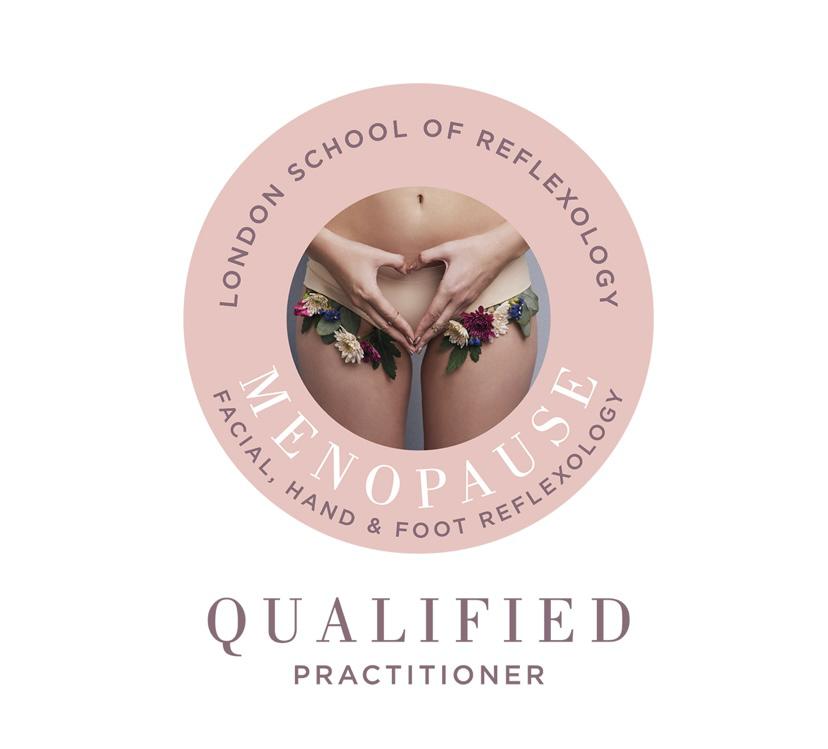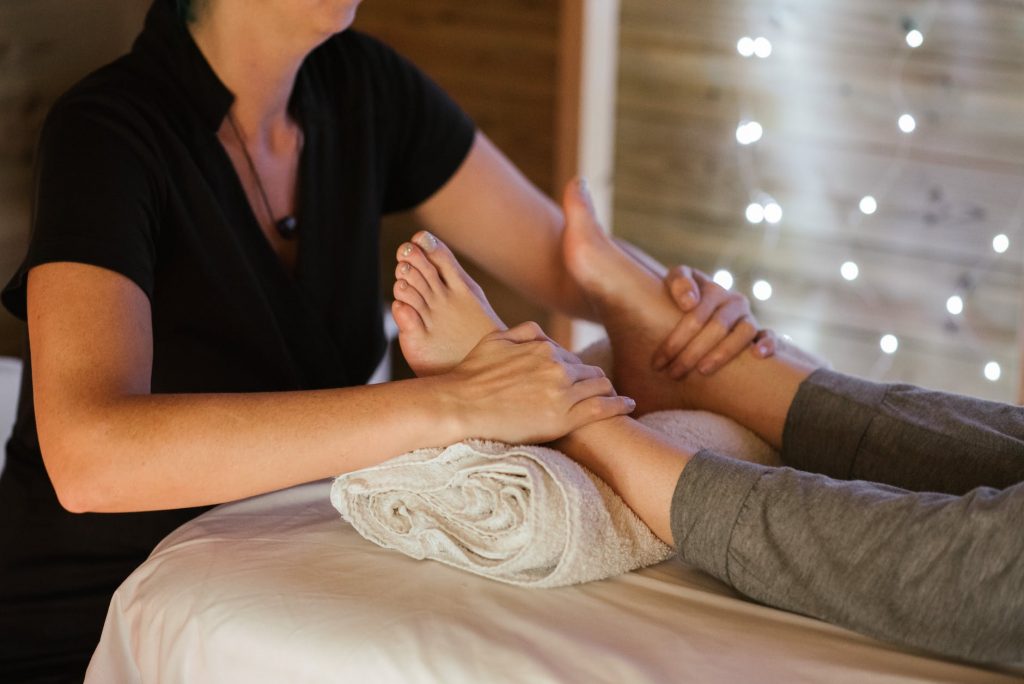What complementary health therapy can be effective in promoting deep relaxation and wellbeing; by reducing stress and by optimising good health and building resilience? With our ever increasing levels of stress in everyday life, it is so important that we actively take responsibility to reduce our stress levels. Cortisol rises as we age, and symptoms of menopause, like anxiety, are made worse by stress. Can reflexology help us mitigate the stresses of our modern lives? Can we use reflexology for menopause as one of our tools to support us with our symptoms? At Rowena Health, we love to work with experts in their field to help educate women.
The art of reflexology?
This dates back to Ancient Egypt, India and China, but this therapy was not introduced to the West until Dr William Fitzgerald developed ‘Zone therapy’ in the early 1900s. He believed that reflex areas on the feet and hands were linked to other areas and organs of the body within the same zone. In the 1930’s, Eunice Ingham developed this ‘zone therapy’ into what we now know reflexology.
Restoring the body
Reflexology does not cure, diagnose or prescribe. It is a very individual treatment which is tailored to you as a whole person, taking into account both physical and non-physical factors that might affect your wellbeing.
The theory is that reflexology helps the body to restore its balance naturally. After a treatment you may feel more relaxed, you might also notice yourself sleeping better and find that your mood and sense of wellbeing is improved. There have been some positive research projects carried out with reflexology; however, as yet, there is not a large enough body of evidence to make clinical claims of effectiveness in menopause.
However, I believe in holistic medicine, in choice, and in the use of our senses, particularly touch, to support our wellbeing. At Rowena Health I take time during each consultation to really understand symptoms, to explain why they are happening and then to explain all the options, hormonal and non hormonal. I support my patients with their menopause and women’s health care and I value a holistic approach, not only with medication, but with lifestyle, with complementary therapy, if preferred, and with ways to reduce stress. I was so delighted to meet Julie Wilkins, a Reflexologist, who offered me a session of reflexology for menopause so that I could experience this wonderful therapy for the first time. Julie trained at the Maureen Burgess School of Reflexology qualifying in 1997, and is a member of the association of Reflexologists. Julie has helped me by writing this part of the article.
What is reflexology?
This video can help.
Reflexology is a non-invasive complementary therapy that uses gentle pressure on reflexology points of the face, hands and feet. The reflexology points correspond to different parts of the body, rebalancing the area of the body to which these points relate.
Reflexology may aid relaxation and could help to reduce feelings of stress and anxiety. Clients report that reflexology helps by improving their mood and provides a sense of wellbeing.
Menopause reflexology combines facial, hand and foot reflexology and focuses on key reflexes for common menopausal symptoms. The focus of the treatment aims to help reduce symptoms on a physical and emotional level.
Within the menopause reflexology session, alongside the relaxing treatment, you will be advised on some self-care tips.
‘Reflexology can be helpful for ladies looking for a natural approach to managing their menopausal symptoms as well as for those on HRT. I am delighted to offer facial, hand & foot reflexology as part of a package of care for menopause. These can be taken as a one off treatment for relaxation or as a 6 or 12 week course.’
Julie Wilkins MAR
My personal experience?
This was wonderful, during the therapy there was a deep sense of calmness, not quite like anything I have experienced. It was gentle, relaxing, there was a peacefulness and flow to the treatment from my face to my hands and then my feet. Some people experience tearfulness or tiredness the following day, but I did not have any adverse effects. I wonder if it caused pain in my knee to significantly reduce, and without doubt I felt the power of touch reduced any feeling of stress and anxiety. Would I recommend it? Yes, I absolutely would.
Looking for a reflexologist?
If you are looking for a reflexologist then it is important to find qualified practitioner. The letters MAR denotes membership status of the Association of reflexologists– a sign of assurance that they have met the strictest standards of reflexology practice, they are insured to practise and that they are committed to continually developing their skills and knowledge.
Please note: reflexology should not be used as an alternative to seeking medical advice. Reflexology can be received by anyone at any age, however, there may occasionally be times when it is not suitable for you so please discuss this with your reflexologist. Some people find it works well for them, and others don’t see the same effect.

Tel: 07831782534 Email: [email protected]
This article was written by Dr Carys Sonnenberg and Julie Wilkins MAR
Last updated August 2024 Dr Carys Sonnenberg Rowena Health
To book an appointment at Rowena Health Menopause Clinic online, if you are in the UK or at our Guildford Clinic please click the link, we would be delighted to see you.
Reference to: Association of Reflexologists


